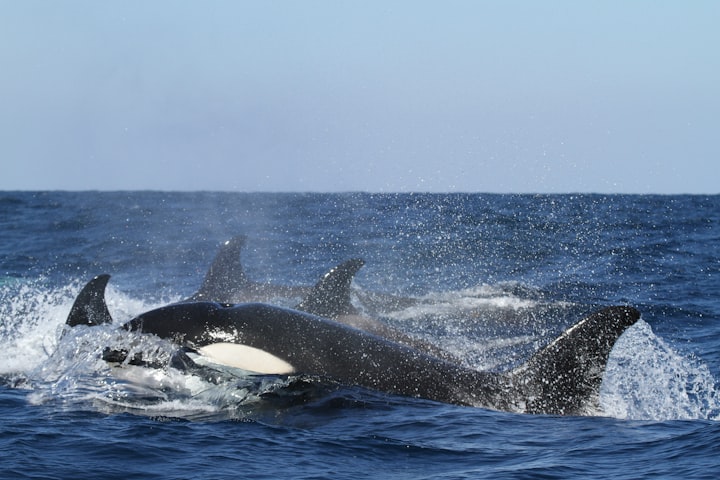Right Whale Mother’s Death Raises Concerns About Vessel Strikes
Her death is the fourth recorded for the endangered mammals in 2024.
On March 30th, 2024, off the coast of Virginia, marine researchers regretfully discovered the deceased body of "Catalog #1950," a 35-year-old North Atlantic right whale mother, shortly after giving birth to her sixth calf. This tragic incident marks the fourth documented mortality of a North Atlantic right whale in United States waters this year.
The mother whale, identified as "Catalog #1950," was found approximately fifty miles offshore. Her newborn calf, which was initially sighted off Amelia Island, Florida, in February, was not present, raising concerns about its survival.
This incident underscores the ongoing threats faced by North Atlantic right whales, including vessel collisions and entanglement in fishing gear. Catalog #150, a female right whale observed with her newborn calf in Georgia on January 11th, 2024, had endured three entanglements during her lifetime but successfully bore and raised five calves. Researchers emphasize female right whales might give birth to up to ten calves if they survive these dual threats.
With the passing of Catalog #150, her lineage now rests solely with her three daughters, none of whom have yet produced offspring of their own. This situation highlights the urgent need for conservation efforts to protect and preserve this critically endangered species.
North Atlantic right whales face dire threats to their population, with about 360 individuals remaining. Leading causes of mortality for these endangered marine mammals include vessel strikes and entanglement in fishing gear.
Recent events have highlighted the urgent need for conservation efforts. Catalog #150's passing marks the tragic fourth documented fatality of a North Atlantic right whale in the United States this year. In January, a three-year-old female juvenile whale washed ashore on Martha's Vineyard, showing signs of chronic entanglement wounds. Following tribal law, she received a proper burial, with her skeleton preserved for research.
Just weeks later, a one-year-old female calf was found deceased off the coast of Savannah, Georgia, with evidence of blunt force trauma from a suspected vessel strike. Furthermore, last month, Juno's ("Catalog #1612") eighth calf washed ashore dead, having suffered severe propeller wounds shortly after birth.
In response to the persistent mortalities of right whales, the National Oceanic and Atmospheric Administration (NOAA) has proposed significant modifications to existing regulations regarding vessel speed. These velocity rules seek to address two primary difficulties impeding the recovery of the right whale population. First, they rectify the disparities between regions and periods of elevated vessel collision risks, seasonal management zones, and spatiotemporal boundaries. Second, they aim to address the absence of mandatory speed restrictions for vessels measuring between 35 and 65 feet, a known threat to right whale survival. The proposed modifications encompass extending the temporal and spatial extents of seasonal speed zones, imposing speed restrictions on vessels up to 65 feet, and implementing mandatory speed limitations in dynamic speed zones based on observations of right whales likely to remain in the area. This proposal, in the works for eighteen months, is currently under interagency regulatory review, underscoring the ongoing need to protect these majestic creatures from the persistent risk of vessel strikes.
How to Keep Right Whales Safe This Summer
- Reduce Plastic Pollution: Say "no" to plastic bags, packaging, sheets, fishing ropes, nets, tackle, and balloons.
- Be Cautious Around Right Whales: If you're a boater, slow down to 10 knots and watch for signs of Right Whales, like white water, splashing, or dark objects.
- Support Conservation Efforts: Donate money or time to organizations that protect Right Whales and other marine species. Sign petitions and join beach cleanups, too.
- Back Eco-Friendly Initiatives: Support marine protected areas, responsible ecotourism, research efforts, and conservation initiatives.
- Raise Awareness: Educate the public about these magnificent creatures and their habitat.
About the Creator
Jenna Deedy
Zoo and Aquarium Professional, Educator, Cosplayer, Writer and B.A. in Psychology whose got a lot to share when it comes to animals, zoos, aquariums, conservation, and more.
Instagram: @jennacostadeedy






Comments
There are no comments for this story
Be the first to respond and start the conversation.